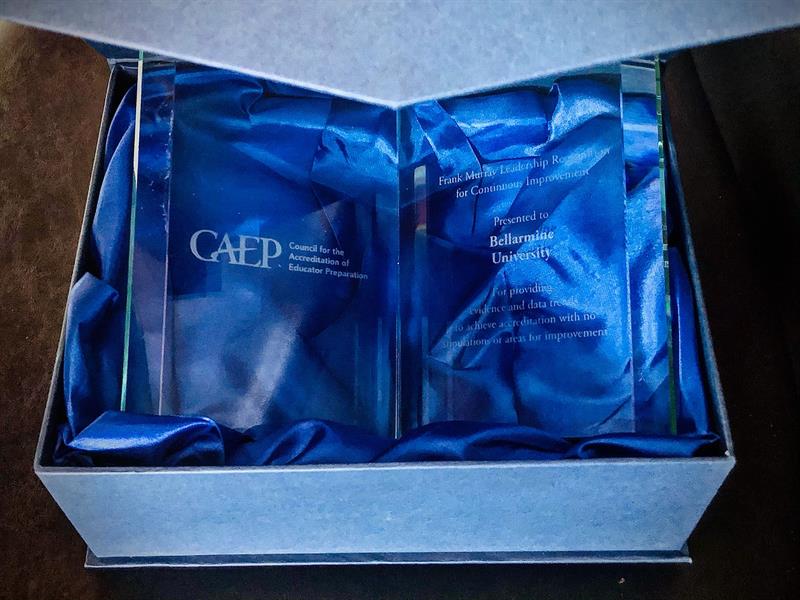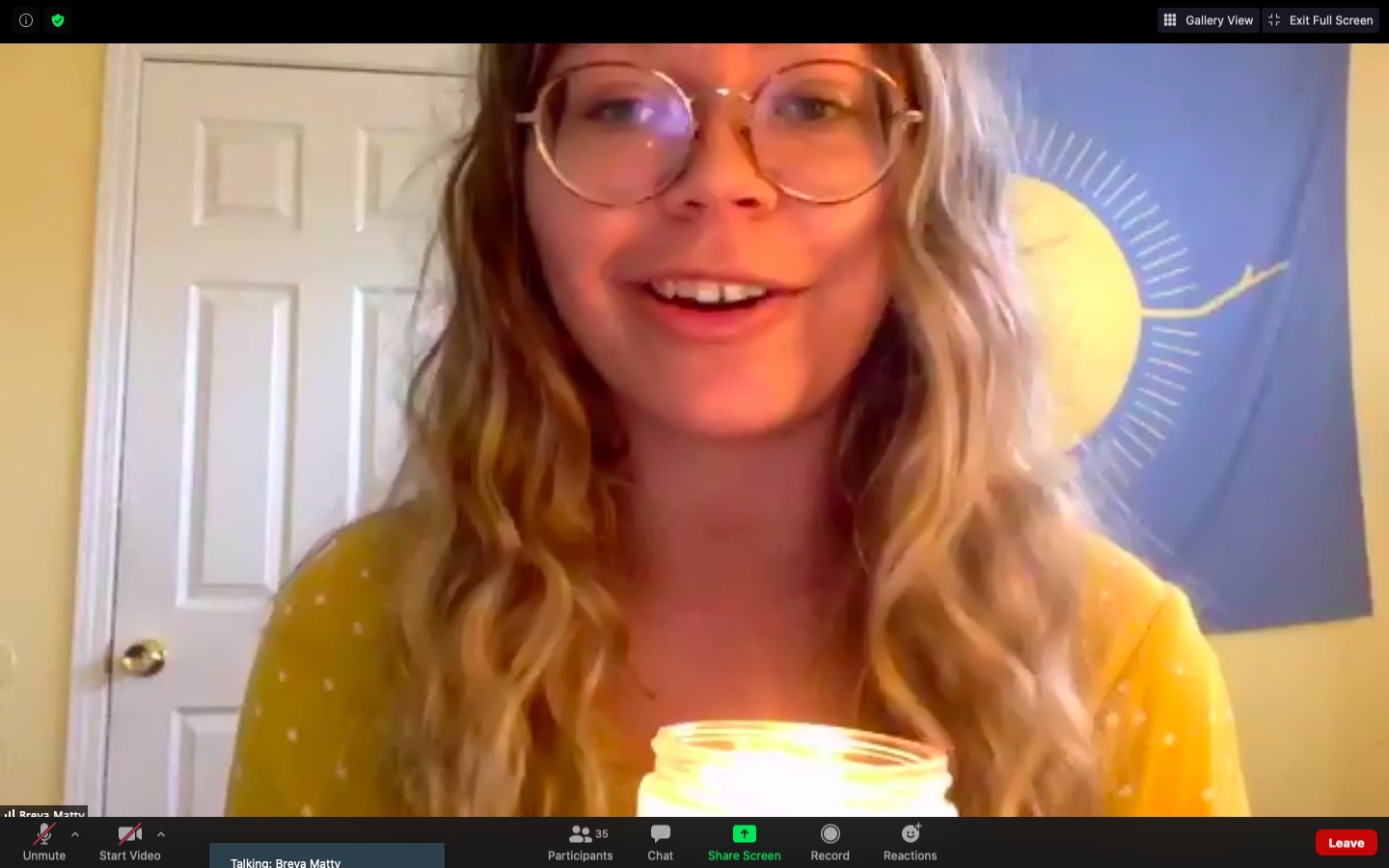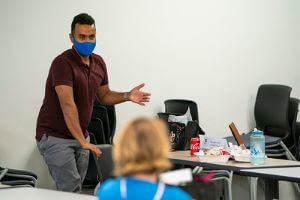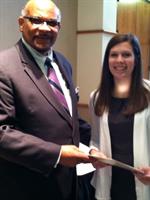A Note From Our Dean
Greetings,
This season always calls my attention to juxtapositions: embracing gratitude while recognizing and honoring the needs of others, winter’s darkness interrupted by the season’s lights, and the promise of faith against the backdrop of the world’s struggles. Education, like faith, is a promise—and the work you do as Bellarmine educators can certainly be a light for healing and hope.
In the School of Education, we will continue to be intentional in our response to COVID and calls for healing and justice. To support learning during COVID, our faculty have done stellar work embracing new technologies, providing unique video-based field experiences, and embracing the flexibility to meet individual student needs. To support calls for healing and justice, we held listening sessions and renewed our commitment to diversity, equity, and inclusion through curricular examination and professional growth. We will continue working to support each of you and the students you serve now and will serve in the future.
I wish each of you a safe and healthy holiday season filled with warmth and light. We are grateful for you.
 Peace,
Peace,
Elizabeth Dinkins, Ph.D.
Dean, Associate Professor
Annsley Frazier Thornton School of Education
It was the year of nontraditional education (NTI), and for two seniors, the pandemic teaching experience presented challenges unseen perhaps any time in memory—but also insights they otherwise might not have found so early on in their careers.
University supervisor Lynn Gottbrath recognized the challenge and the approach her aspiring teachers had to take in this unique situation. “The student teachers and practicum students had to work extra hard in building relationships with the [classroom] students,” she says, adding that the students on the other side of the monitor often had their cameras off or did not show up altogether. Still, “I feel that the students that I worked with took on the NTI challenge with a positive approach.”
Visiting
Instead of meeting the student teachers in a traditional classroom, the students effectively invited the teachers into their homes. “We were literally in these students’ homes every day for at least an hour,” says Cassie Kemper, who was at Camp Taylor Elementary in a 1st grade virtual classroom and 4th-5th virtual ECE room, and currently is doing NTI at Seneca High School. “I could see if these students were just there by themselves, or if there were 25 people in the house with constant distractions, which allowed me to make sense of student performance and ways that I could help.”
Breya Matty, who also is working with Camp Taylor, concurs. “Being able to see and interact with the home environments was amazing, giving [students] time to share about their pets and their siblings or a toy. It was such an amazing relationship-building moment.” Because of this, any day was a potential parent-teacher conference day. “I was able to get [adults] more involved in the students’ learning, which helped spark a relationship with the families as well!” says Breya, who liked the opportunity to work with the kids one on one, recognizing and addressing their individual needs.
Messing up
Even with the caregivers’ attention, some problems were nearly impossible to avoid. Breya missed the depth provided by hands-on activities and experiments, which were not as engaging in the NTI environment as they would be in person. “Honestly, being in front of a screen all day isn’t exciting, no matter how great the activity,” she says.
“There is only so much time in a school day,” says Cassie, noting that the rigid NTI schedule provides virtually no breathing room for students who were late or simply did not show up—not to mention moments of internet trouble. “The one thing that we could always expect is that the technology would mess up.”
Toward a resilient generation
During the NTI experience, Breya and Cassie had the opportunity to engage with the kind of practices they hope to master. In her mind, Breya has “a very specific type of teacher I aim to be, and I love to test creative boundaries. Going into NTI made me really scared that I would have to give some of that up. However, I ended up being able to find some great alternatives that worked well for my kiddos.” She recently was accepted to Teach For America’s Appalachia Corps and recognizes that although NTI is not ideal, “it is more important to have them safe and healthy.”
Cassie also found the decidedly unorthodox professional semester experience to be an affirmation of what she loves. “One of the things I noticed is that our students need us as much as we needed them,” she says. “After seeing the way these students worked, I believe that our future will be made up of compassionate, resilient and technologically savvy [people]. They will have lived through something that most people haven’t and have an insight that most do not.” As for her fellow teachers, “I believe that because of this experience, teachers will be more resourceful and understanding. We have gone through so much to ensure that we are using the best resources, and making learning engaging and fun.
“I have a lot of hope for the future, and I am so excited to see these kids change the world.”

In October, the School of Education was awarded the 2020 Frank Murray Leadership Recognition for Continuous Improvement. The award—of which Bellarmine was one of nine recipients in 2020—is given to educator preparation providers that earn Council for the Accreditation of Educator Preparation (CAEP) accreditation with no areas for improvement or stipulations.
“CAEP accreditation demonstrates our school’s commitment to providing effective educational experiences for future teachers and educational leaders,” says Dr. Dinkins. “Everyone in the School of Education is committed to our students and the field, and we live out our commitment to data-driven reflection and growth, modeling what we expect of our students. The award is a testament to our incredible faculty and staff.”

On November 8, the Bellarmine chapter of the Kappa Delta Pi education honor society welcomed 21 new members. Even with the pared-back, socially distant initiation, Dr. Winn Wheeler says she felt the ceremony went well. “I thought we were able to create a meaningful experience for the new inductees. I think the shifts that we are all feeling with the pandemic—social distance, economic, etc.—contributed to a lower number of inductees, but I understand from the larger organization that we had a good turnout.” With this in mind, vice president Cassie Kemper says she and the other officers plan to keep members engaged through informal meetings and a newsletter designed to share and highlight exciting news or events. The group also has small panel discussions and even a service project planned.
Three School of Education alumni were recognized as members of Louisville Business First’s 40 Under 40 for 2020: April Brooks (Ph.D. ’17), principal of Johnson Traditional Middle School; O.J. Oleka (Ph.D. ’17), president of the Association of Independent Kentucky Colleges and Universities; and Sarah Peace (B.A. ’05, MAT ’10, Ed.S. ‘15), principal of Mercy Academy. As Peace told Louisville Business First, “Education is the great equalizer, and being an educational leader demands a willingness to be innovative and forward thinking.”
Nationally, Maryann Hayslip, principal of St. Aloysius School in Pewee Valley and a 2007 graduate of our Principal Preparation program, was one of but 10 recipients of the 2020 Terrel H. Bell Award for Outstanding School Leadership given by the U.S. Department of Education.
You are invited to join (or transfer your current membership to) the Council for Exceptional Children (CEC), the nation’s leading professional organization for educators of children with exceptionalities. Because of the national affiliation, chapters receive help with organization and fundraising, representation at conferences, access to various awards and grants, as well as career-building connections, experiences, and training. This coming spring, the Bellarmine University chapter (KY-0605) will be working with the special education team at Okolona Elementary School to complete a service project for their students and staff. For more information, contact Dr. Ali Taylor at ataylor9@bellarmine.edu.
 When it was originally conceived, the idea of taking an entire cognate online was an unusual one, but it turned out to be the right one for the times—and with the right people, too. “I was used to seeing my colleagues and students each day and the energy that comes from a vibrant school community,” says Dr. Tommy Wells, who joined the faculty as an instructor in the Trauma-Informed Master of Arts in Education cognate after a career as a counselor in K-12 schools. “I wasn’t sure what to expect in becoming a full-time faculty member in higher education, especially when everything is virtual.” However, it turned out to be a soft landing; he says everyone has been “really supportive” and has enjoyed connecting with the Trauma-Informed students, who hail from across the country and even a couple of countries. “We know that students can experience trauma in any environment, especially now because of the pandemic, so this program couldn’t have started at a better time,” he says.
When it was originally conceived, the idea of taking an entire cognate online was an unusual one, but it turned out to be the right one for the times—and with the right people, too. “I was used to seeing my colleagues and students each day and the energy that comes from a vibrant school community,” says Dr. Tommy Wells, who joined the faculty as an instructor in the Trauma-Informed Master of Arts in Education cognate after a career as a counselor in K-12 schools. “I wasn’t sure what to expect in becoming a full-time faculty member in higher education, especially when everything is virtual.” However, it turned out to be a soft landing; he says everyone has been “really supportive” and has enjoyed connecting with the Trauma-Informed students, who hail from across the country and even a couple of countries. “We know that students can experience trauma in any environment, especially now because of the pandemic, so this program couldn’t have started at a better time,” he says.
Drs. Kristin Cook and Jessica Ivy took part in presenting a three-week virtual STEM camp at UK this summer. They geared their instruction toward 2nd- to 5th-graders, adding the arts to reflect our new MAEd. STEAM program’s scope and uniquely versatile design. In other science, technology, engineering and math (and art) education-related SoE news, Cook and Ivy collaborated with Dr. Kevin Thomas and Dr. Rob Kelley from Computer Science on an article published in the October International Journal of Computer Science Education in Schools called “Incorporating Cyber Principles into Middle and High School Curriculum” (doi: 10.21585/ijcses.v4i2.101).
Dr. Dinkins was honored to take on a new leadership role with the Kentucky Association for Career and Technical Education (KACTE) this past spring, working collaboratively to allow the state’s educator preparation programs to work closely with its Office of Education Licensure and Effectiveness. Fostering improvement in the preparation of teachers and other education professionals, the organization’s members are unified by a passion for teaching and also for fostering the success and growth of Kentucky’s K-12 students. “This year KACTE has been focused on expanding access to teacher education and promoting anti-racist pedagogies,” she says. “It’s ongoing work, but it’s important and invigorating.”

Dr. Bernie Minnis, a great champion for educating children from poverty circumstances and a tireless warrior for equity and social justice, died on November 13 at the age of 79. In addition to being an assistant professor and adjunct in the School of Education from 2011 to 2018, Dr. Minnis served the students of Louisville as a Jefferson County Public Schools assistant superintendent and was a winner of the Martin Luther King, Jr. Award. Says Dr. Dinkins: “He was a truly wonderful person who dedicated his life to making our world better. I feel very lucky to have worked with him.” Pictured: The late Dr. Minnis, with Dr. Ali Taylor.